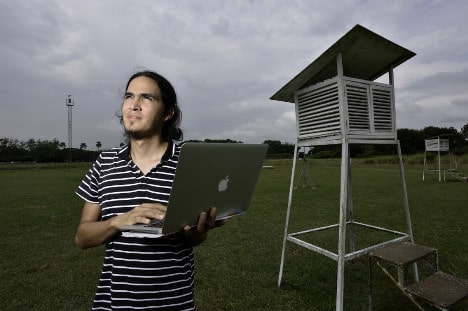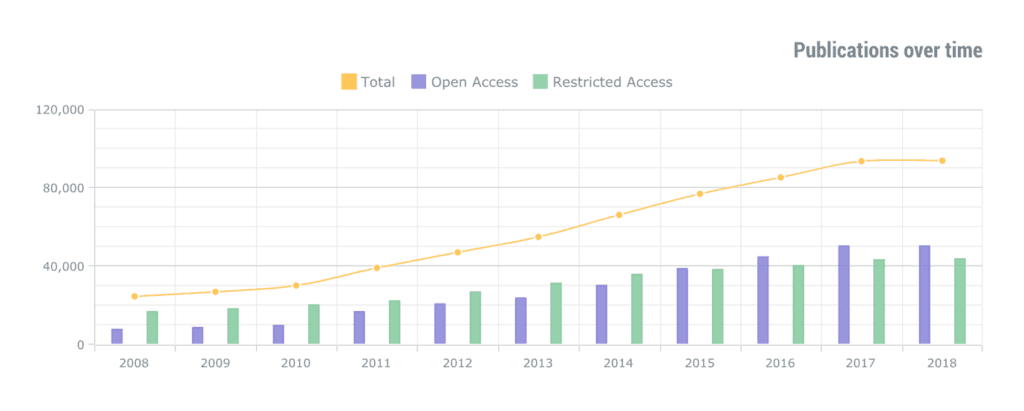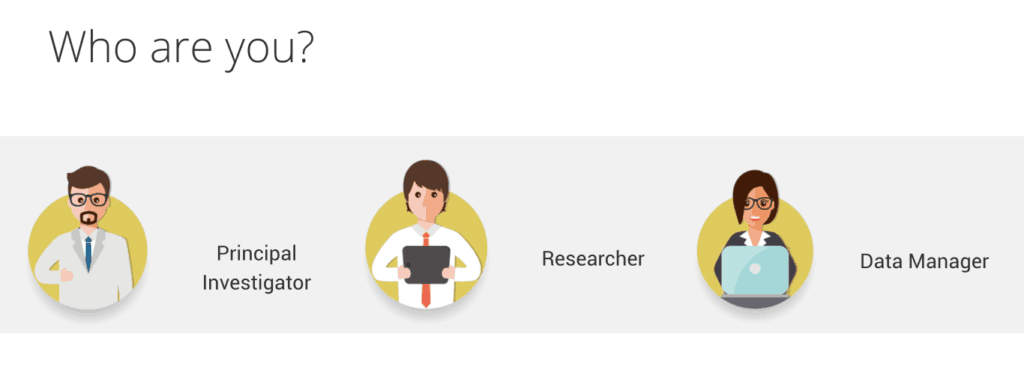Open Access: Unlocking agricultural innovation
Open access to knowledge and data has the power to drive agricultural innovation, accelerating our progress towards achieving the Sustainable Development Goals and maximizing impact for the benefit of smallholder farmers and their families.

The Platform for Big Data in Agriculture is working to ensure that the results of CGIAR’s research and development activities are freely and broadly available, helping to boost the efficiency and efficacy of research while also supporting interdisciplinary collaboration.
This week is open access week, running from 22-28 October, and its theme this year ‘Designing Equitable Foundations for Open Access’ aligns with the work that the CGIAR Platform on Big Data in Agriculture is leading within CGIAR.
CGIAR’s policy on open access and open data came into effect in October 2013, and to allow for effective implementation, went through a five-year transition period. Now in 2018, that transition period has ended, and as a result of the efforts of CGIAR Research Centers, Programs and Platforms, over 50,000 publications and 1,500 datasets are open access and available to the general public.
The big data Platform has been compiling the research outputs into a single, easy-to-use resource known as GARDIAN. The Global Agriculture Research Data Innovation and Acceleration Network, or GARDIAN for short, uses machine-readable structured data from all CGIAR Research Center, Program and Platform repositories, collects it, and displays the outputs in a central repository.
GARDIAN helps CGIAR make progress towards making their data FAIR – Findable, Accessible, Interoperable and Reusable – enabling any user to search and discover any CGIAR publications and datasets. The platform now has a total of over 93,000 publications and 2,100 datasets.

The balance of open access publications shifted in CGIAR since the policy on open access and open data came into effect in 2013. Source: GARDIAN.
To further support open access across the CGIAR System, the big data Platform provides a data management support pack, designed to help researchers produce high-quality and reusable data. The support pack makes it easy for researchers to find what they’re looking for, depending on what stage of the research process they’re at, and what kind of data they’re collecting. Providing researchers with the right tools to generate quality data will assist other researchers to discover these datasets and synthesize them as part of their research outputs.

The data management support pack provides researchers with easy to access tools to produce high-quality, reusable data.
Discovery of these key outputs showing the range, depth, and importance of CGIAR research was made possible via a prototype system enabling a “one-stop” search across thirty or so Center data and publications repositories — an exciting first.
Read next: ‘If Mary has a little lamb, who should know about it?’
While the enthusiasm for data sharing grows, we recognize the importance of doing it right. We have been working to ensure that data sharing and use comply with ethical standards that protect those who could be vulnerable to exploitation. We have completed surveys of each of the 15 centers’ privacy and ethics standards, and are in the last stages of developing a set of guidelines to help researchers navigate the evolving implications of technology, confidentiality, intellectual property, consent, access and sharing of benefits.
By successfully implementing open access and open data in a coordinated and responsible way across CGIAR, it has ensured that researchers are given the best opportunities to unlock agriculture innovation.
Read more about the role of the CGIAR Platform for Big Data in Agriculture in supporting open access and open data.





farming is something that is considered easy but it is difficult. many things that must be considered and considered when going to plant. I am very happy if there are people who want to move and take action to grow crops or create new innovations in farming. this article is very helpful! thanks for sharing
http://news.unair.ac.id/en/2019/04/22/four-unair-students-present-agricultural-innovation-south-korea/
this is such a powerful initiative. It can help in the validation of various models, especially on climate change effects